I'm going to write another answer... because double answers are better!
As derHugo said in his answer, it could be done using enums, but it would force a recompile. Well, sometimes maybe you just really want that enum (they are much faster than strings in some scenarios) and you're willing to accept the recompilation penalty.
So here's a little utility class I wrote for generating an enum and saving it to file.
Make a member variable with a list of strings that the designer can edit.
You'll probably want to put a button on your UI called "GenerateEnums" or something like that and perhaps a string for the save directory, which would call the save function and write the enum definition to file. There is code to force a recompile, so whenever the designer presses that button, they'll need to wait for a few seconds. Also, there is the chicken-and-egg problem - you can't reference the type until the definition has been generated at least once. Typically I get around that by just putting a file with the same filename in the intended location and giving it a dummy enum (like "public enum CharacterType { dummy }"). After the designer edits the string list, presses the generate button, and waits for a few seconds, they'll be able to see the updated selections in any fields that use that enum type (CharacterType in this example).
// this has a bunch of functions for generating enums in the editor
using System.Collections.Generic;
public static class EnumUtils
{
private static readonly HashSet<string> m_keywords = new HashSet<string> {
"abstract", "as", "base", "bool", "break", "byte", "case", "catch", "char", "checked",
"class", "const", "continue", "decimal", "default", "delegate", "do", "double", "else",
"enum", "event", "explicit", "extern", "false", "finally", "fixed", "float", "for",
"foreach", "goto", "if", "implicit", "in", "int", "interface", "internal", "is", "lock",
"long", "namespace", "new", "null", "object", "operator", "out", "override", "params",
"private", "protected", "public", "readonly", "ref", "return", "sbyte", "sealed",
"short", "sizeof", "stackalloc", "static", "string", "struct", "switch", "this", "throw",
"true", "try", "typeof", "uint", "ulong", "unchecked", "unsafe", "ushort", "using",
"virtual", "void", "volatile", "while"
};
// This function will return a string containing an enum declaration with the specified parameters.
// name --> the name of the enum to create
// values -> the enum values
// primitive --> byte, int, uint, short, int64, etc (empty string means no type specifier)
// makeClassSize --> if this is true, an extra line will be added that makes a static class to hold the size.
// example:
// print(MakeEnumDeclaration("MyType", { Option1, Option2, Option3 }, "byte", true));
// output --> public enum MyType : byte { Option1, Option2, Option3 }
// public static class MyTypeSize { public const byte Size = 3; }
public static string MakeEnumDeclaration(string name, List<string> values, string primitive, bool makeSizeClass)
{
string prim = primitive.Length <= 0 ? "" : " : " + primitive;
string declaration = "public enum " + name + prim + " { ";
int countMinusOne = values.Count - 1;
for (int i = 0; i < values.Count; i++) {
declaration += MakeStringEnumCompatible(values[i]);
if (i < countMinusOne) { declaration += ", "; }
}
declaration += " }\n";
if (makeSizeClass) {
declaration += $"public static class {name}Size {{ public const {primitive} Size = {values.Count}; }}\n";
}
return declaration;
}
public static void WriteDeclarationToFile(string fileName, string declaration, bool reImport = false, string filePath = "Assets/Scripts/Generated/")
{
// ensure that the output directory exists
System.IO.Directory.CreateDirectory(filePath);
// write the file
System.IO.File.WriteAllText(filePath + fileName, "// This file was auto-generated\n\n" + declaration);
#if UNITY_EDITOR
if (reImport) { UnityEditor.AssetDatabase.ImportAsset(filePath); }
#endif
}
public static void WriteDeclarationsToFile(string fileName, List<string> declarations, bool reImport = false, string filePath = "Assets/Scripts/Generated/")
{
string text = "";
for (int i = 0; i < declarations.Count; i++) { text += declarations[i]; }
WriteDeclarationToFile(fileName, text, reImport, filePath);
}
// given a string, attempts to make the string compatible with an enum
// if there are any spaces, it will attempt to make the string camel-case
public static string MakeStringEnumCompatible(string text)
{
if (text.Length <= 0) { return "INVALID_ENUM_NAME"; }
string ret = "";
// first char must be a letter or an underscore, so ignore anything that is not
if (char.IsLetter(text[0]) || (text[0] == '_')) { ret += text[0]; }
// ignore anything that's not a digit or underscore
bool enableCapitalizeNextLetter = false;
for (int i = 1; i < text.Length; ++i) {
if (char.IsLetterOrDigit(text[i]) || (text[i] == '_')) {
if (enableCapitalizeNextLetter) {
ret += char.ToUpper(text[i]);
} else {
ret += text[i];
}
enableCapitalizeNextLetter = false;
} else if (char.IsWhiteSpace(text[i])) {
enableCapitalizeNextLetter = true;
}
}
if (ret.Length <= 0) { return "INVALID_ENUM_NAME"; }
// all the keywords are lowercase, so if we just change the first letter to uppercase,
// then there will be no conflict
if (m_keywords.Contains(ret)) { ret = char.ToUpper(ret[0]) + ret.Substring(1); }
return ret;
}
}
Caveats:
Keep in mind that this method is a bit brittle as with anytime you use an enum in the editor. Deleting or inserting an enum value in the middle of the values could cause any fields using that enum to use the wrong index because all the indexes will shift by one. There will be no compiler error and you could get weird activity at runtime.
Deleting or renaming an enum value might cause your code to stop compiling if you're using that enum value in your code (which is probably a good thing - with strings there is no compiler error and you'll get a silent confusing surprise at runtime).

